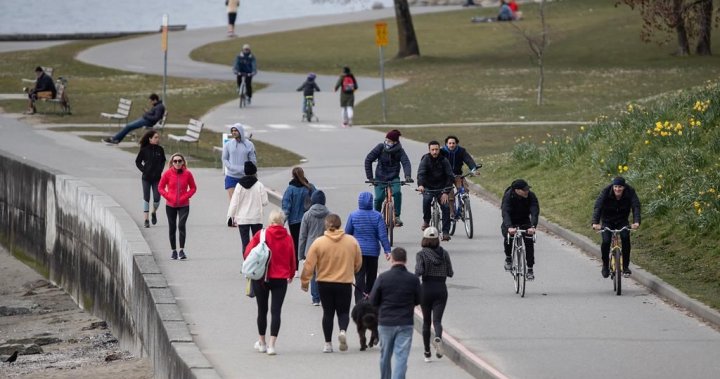
Most Canadians more trusting of neighbours, institutions since COVID-19 pandemic: study
Global News
About 58 per cent of people in Canada trusted their neighbours slightly more after the pandemic than before, new survey data shows.
You wouldn’t think it to watch scenes of honking truck drivers or sign-carrying anti-vaccine protesters, but new survey data suggests Canadians have more trust in their institutions and their neighbours since the COVID-19 pandemic.
Still, Canada is a long way from a national “Kum Ba Yah” sing-along. Cary Wu, lead author of the newly published paper, said that trust is highly correlated with how much money you make.
“Income is a good predictor,” said Wu, a York University sociologist who has just published his study in the journal Social Science Research.
“Most Canadians have become more trusting in their neighbours and generalized ‘others.’ But (some) Canadians have become very much less trusting.”
Although previous research has taken snapshots of Canadian attitudes during the pandemic, Wu and his two co-authors wanted to look at how they may have changed over time.
Three theories exist on what happens to social trust during times of social stress. Some researchers hold that people come together; some that they break apart. Others say that levels of social trust are set early in life and subsequent events change little.
“We did find those three types of patterns,” Wu said.
The three authors began with a standard Angus Reid survey of about 2,500 Canadians taken in September 2019, just before the pandemic hit. That survey asked a series of routine questions such as: Would you say that most people can be trusted?













